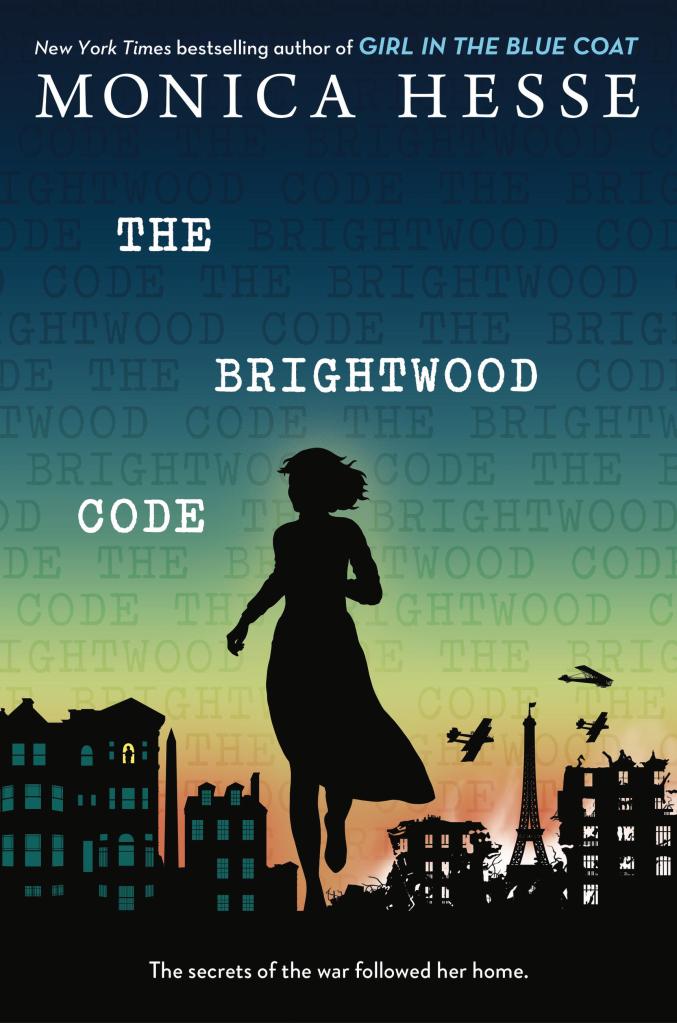1 Author, 7 Questions: Monica Hesse
Monica Hesse is the queen of the heart-breaking historical mystery! Truly, if you haven’t had the chance to pick up one of her books, you’re missing out! But the good news is she’s returning with The Brightwood Code – a WWI mystery surrounding a mysterious call and an enigmatic code word! We got to sit down virtually with Monica and ask her seven of our most burning questions – and we even got a little sneak peek into what she’s working on next!
1. What was your initial inspiration for The Brightwood Code?
I am always, always interested in the little pockets of history that go unexplored—the footnotes that don’t make textbooks at school. The history of the Hello Girls is completely riveting. They were the first American women to serve in an official war capacity, as switchboard operators in World War I. They put their lives at risk, working mere miles away from the front lines in France, and then as soon as the war was over, they were tossed aside. The United States didn’t even recognize them as official veterans. I wanted to explore what might happen to one of those girls, who carried the trauma of war but not the recognition of heroism.
2. Can you describe your writing process? Are you more of a pre-plotter or do you let the plot develop as you write?
The best thing about writing mysteries is that it feels very much like reading mysteries. I always start out with a basic, impossible-seeming premise, i.e. The girl disappeared from a locked, guarded room or the caller can’t possibly know what I did, but they know what I did—and then I work backward from there to figure out how we might have plausibly reached the impossible place. When I was a little girl, there was nothing I loved more than reaching into my mother’s jewelry box, pulling out a tangled mess of a necklace, and slowly untangling it one knot at a time. Mystery novels are like that. You start with the knot and you write until the story is smooth.
3. Speaking of plotting, the way you develop the twists in your stories! I mean, they always leave me with my jaw on the floor! What do you think the key to writing a truly shocking plot-twist is?
Honestly? I think the key to a shocking plot twist is remembering the humanity of your characters. Most people don’t view themselves as the villains of their own stories—they’re heroes, who have done unspeakable things because of their own pain and their own histories. In my books, the twist endings always hinge on learning not what has happened, but why it happened. They don’t add luridness to the story, they add heartbreak.
4. Your previous historical fiction YAs They Went Left, The War Outside, and Girl in the Blue Coat all cover different aspects of WWII whereas The Brightwood Code covers WWI. What was it like jumping back further in history and working within a new time period? Was there a difference in the type of research you had to do for this book versus your previous?
One of the trickiest things to get right in any historical fiction is the technology of the time: When was color film invented? Is it realistic if my character owns a camera? A car? Would the city she lives in have had a movie theater? The Brightwood Code is about switchboard operators, and telephone technology was very different in 1919 than it is today, or would have been in WWII. I spent so much time trying to figure out things like, how do you place a long-distance call? How many minutes would that take? How many digits was a telephone number at the time, and if you didn’t know someone’s phone number, was there a way to find it? It was a much more niche kind of research than I’d had to do with my other novels, but so completely fascinating.
5. Your characters are *chef’s kiss* always! I adore both Edda and Theo in this book, and their relationship is so genuine! What was it like developing their characters and the way they bounce off one another?
I really wanted Edda and Theo’s relationship to have a lived-in feel from the very beginning. I knew they both would be recovering from their own traumas, and frankly, they would have every reason to avoid getting too close to other people. So in order for it to make sense for them to be together, it had to make sense when we saw them together. They had to have inside jokes, shorthands, ways they made fun of the other residents in the boarding house. Theo had to know exactly where Edda kept her cigarettes, and Edda had to be comfortable telling Theo to leave her cigarettes alone. They needed to feel like they knew everything about one another—and then, in the course of the novel, realized they knew nothing at all.
6. What are some books you’ve been reading recently or would recommend?
Ahhhhhh! I feel like I can’t tell you because everything that I’m reading right now is nonfiction research related to my next book, and sharing the subject matter would give away major plot points! So I’m going to pull a copout and tell you that the last hardcover book I ordered was The Hunter by Tana French. I love her twisty mysteries. I bought this one as soon as it came out a few months ago, but I haven’t read it. I was saving it as my reward to read as soon as The Brightwood Code came out. The time has almost come!
7. What are you working on now? Any exciting ideas you can share?
The impossible-seeming premise for my next book: The girl who died is standing before me right now.

The Brightwood Code
by Monica Hesse
In a breathless, haunting, and rich historical mystery, New York Times bestselling author Monica Hesse speaks to the depths of trauma and the power of memory.
Seven months ago, Edda was on the World War I front lines as one of two hundred “Hello Girls,” female switchboard operators employed by the US Army. She spent her nights memorizing secret connection codes to stay ahead of spying enemies, and her days connecting vital calls between platoons and bases and generals, all trying to survive—and win—a brutal war. Their lives were in Edda’s hands, and one day, in fateful seconds, everything went wrong.
Now, Edda is back in Washington, DC, working as an American Bell Telephone operator, the picture of respectability. But when her shift ends, Edda is barely hanging on, desperate to forget the circumstances that cut her time overseas short. When Edda receives a panicked phone call from someone who utters the fateful code word “Brightwood,” she has no choice but to confront her past. With precious few clues and help only from Theo, a young man bearing his own WWI scars, Edda races to uncover what secrets may have followed her across the ocean.
Timely and unforgettable,The Brightwood Code sheds light on hidden history and the brutality of being a woman in a war built by men.





